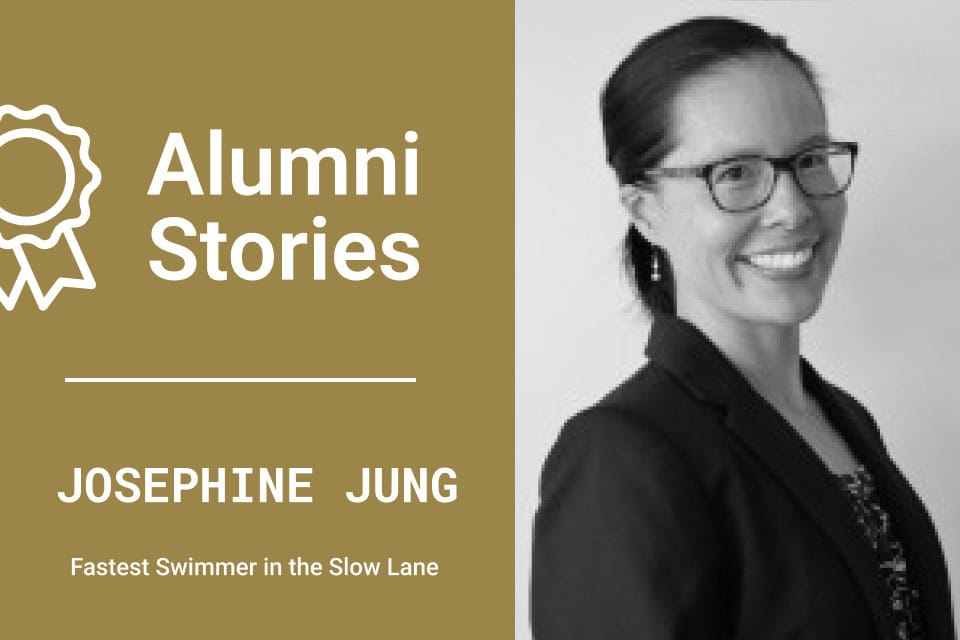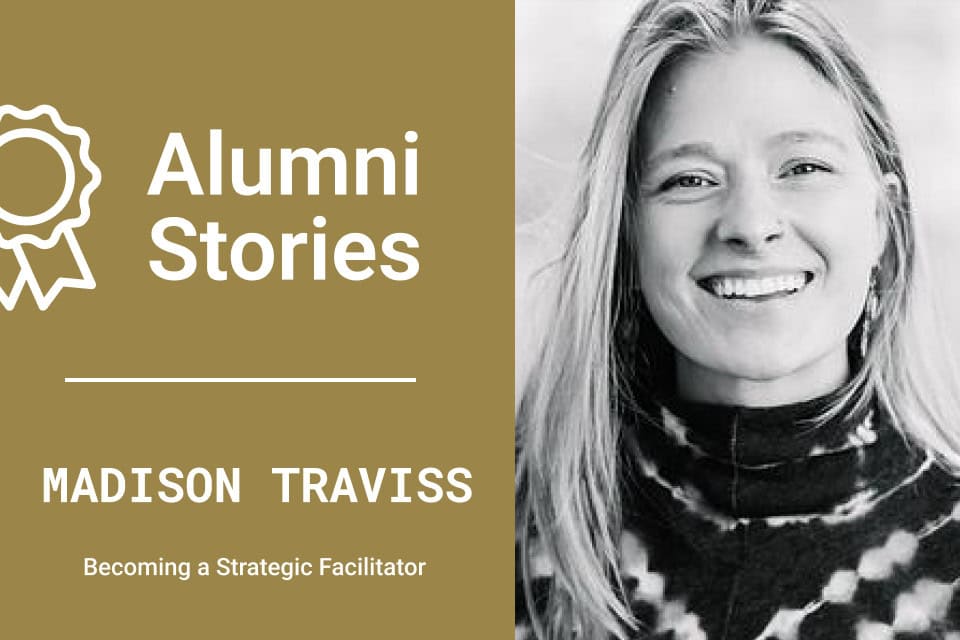How Facilitation Transformed My Approach to Leadership
In 2013, I was a college freshman, navigating my way through new experiences and looking for meaningful ways to get involved. My initial steps into the world of political organizing began with a simple decision to attend a fossil fuel divestment meeting at Swarthmore College. At the time, I didn’t realize that this decision would set me on a path where facilitation would become an integral part of my work.
The meeting itself was unlike anything I had experienced before. It wasn’t just a lecture; it was a participatory session where everyone shared why they were there. This was the first time someone had asked me, “Why do you care about this issue?” and it left a significant impact on me. After that meeting, I was hooked. I quickly took on leadership roles within the organization, and facilitation became a core skill that I would develop through trial and error over the years.

In those early days, I didn’t have formal training in facilitation, but I learned by observing others and by being thrown into the deep end. I facilitated decision-making processes, group meetings, and coaching sessions, all while figuring out what worked and what didn’t. These experiences laid the foundation for my journey into facilitation, though it wasn’t until much later that I realized just how crucial these skills were.
Uncovering the Depths of Facilitation
As I continued to grow in my organizing work, the importance of facilitation became increasingly clear. I noticed that the most effective training sessions, meetings, and strategic discussions all had one thing in common: they were well-facilitated. However, I was often left feeling that there had to be a better way to engage people, especially when things didn’t go as planned.
One significant moment of realization came while running a six-week training program for organizers. Participants came from various organizations and countries, each with different levels of experience. The training was designed to be participatory, much like the sessions I had first experienced in college. Participants would engage with materials on their own and then apply what they learned in small group discussions. Reflecting on these sessions, I saw the difference that strong session design made. When participants were given the space to deeply engage according to their own interests and needs, the outcomes were far more impactful. It was clear that facilitation wasn’t just a skill—it was a key to unlocking meaningful learning, leadership development, and more effective decision making.
This realization sparked a curiosity in me. I began to explore the world of facilitation more intentionally, seeking out resources and learning opportunities that could help me improve. I wanted to understand the tools and techniques that could make me a better facilitator, not just in my work but in any setting where people came together to solve problems and make decisions. This exploration eventually led me to Voltage Control, where I found a community and a wealth of knowledge that resonated with my experiences and aspirations.
Choosing Voltage Control
The decision to pursue formal training in facilitation was a natural progression for me. After a particularly challenging retreat that I facilitated, I found myself reflecting on what I could have done better. I discussed these thoughts with my manager, Randall, during one of our regular check-ins. I shared my desire to strengthen my facilitation skills, and that’s when Randall mentioned the certification program at Voltage Control.
He sent me a Slack message with the details, suggesting that it might be a good fit for my professional development. I was intrigued. The program promised a deep dive into facilitation with practical tools, hands-on practice, and the opportunity to learn from experienced facilitators. What really caught my attention was the idea of having dedicated time to focus solely on improving my facilitation skills, something I had never done before in such a structured way.
The decision felt easy. The timing worked out perfectly, and I was excited about the opportunity to learn and grow in an area that was so fundamental to my work. With Randall’s support, I signed up, ready to see how this experience could enhance not only my facilitation skills but also my overall approach to leadership.
Learning, Practicing, and Growing
The Voltage Control certification was a transformative experience. From the moment I started, I was immersed in a world of facilitation that was both familiar and entirely new. One of the most valuable aspects of the program was the exposure to a diverse set of tools and methodologies that I hadn’t encountered before.
I particularly enjoyed diving into “The Art of Gathering” by Priya Parker. Even though I had read it before, this time I approached it with a facilitator’s mindset, which brought new insights. Parker’s ideas about creating intentional, meaningful gatherings resonated deeply with me. I started thinking more critically about how to design experiences that truly connect people and achieve their goals.
The hands-on practice sessions were another highlight. Facilitating an opener during one of our sessions, for example, gave me the chance to apply what I was learning in a supportive environment. It wasn’t just about getting feedback from instructors but also about learning from my peers. The breakout sessions and buddy meetups were incredibly valuable for this—providing both moral support and a space to exchange ideas and challenges with others who were on the same journey.

One of the most profound moments for me was the concept of the Groan Zone—understanding that the messiness in the middle of a conversation or decision-making process is not something to avoid but a necessary part of reaching meaningful outcomes. This realization has shifted how I approach facilitation, making me more comfortable with the discomfort that often accompanies deep, transformative work.
Overall, the certification didn’t just add to my toolkit—it shifted my perspective on what facilitation can achieve when done well. It was a journey of both personal and professional growth, and I came away with a renewed sense of purpose in my work.
Applying What I Learned
After completing the certification, I found myself approaching facilitation with a newfound confidence and clarity. One of the most significant changes was my ability to intentionally design conversations and workshops with clear goals in mind. The framework of Divergence, Groan Zone, and Convergence became a central part of how I structured group sessions, helping me guide participants through the natural flow of discussion without rushing to premature conclusions.
I also began to integrate more design thinking tools into my work. For instance, empathy maps and journey maps are staples in my planning process, especially when supporting community organizers to design ways of supporting new volunteers to engage in meaningful work and develop their skills and take on more responsibility and ownership over time. s. These tools have helped me create the conditions for participants to access their own knowledge and creativity, supporting their autonomous motivation, quality work outcomes, and commitment to the plans they create.
Even in one-on-one coaching sessions, the concepts I learned have made a difference. I’ve started incorporating a “portal in” process, such as box breathing or reflective coaching questions, to help participants center themselves before diving into the conversation, and a check out question to help participants recognize the progress they’ve made during the session and their problem solving skills. This small but significant change has made our sessions feel more focused and productive. The feedback I’ve received from clients and colleagues has been encouraging, affirming that these new approaches are making a real difference.
Overall, the certification has equipped me with practical tools and a deeper understanding of how to facilitate meaningful conversations and processes. Whether in a large group setting or a one-on-one meeting, I feel more prepared to create environments where people can connect, collaborate, and achieve their goals.
Expanding My Facilitation Horizons
Looking ahead, I’m excited to continue building on what I’ve learned. I’m particularly eager to explore more strategic facilitation, especially in areas like system change and narrative futures. These are the kinds of complex, dynamic challenges where facilitation can make a significant impact, and I’m keen to bring these advanced methods into my work.
One of my goals is to design new workshops and sessions that push the boundaries of what I’ve done before. I want to experiment with integrating design thinking even more deeply into my facilitation practice, particularly in how I approach group decision-making processes. The Voltage Control certification has given me a solid foundation, and now I’m ready to take it further, applying these skills to new and evolving challenges.
At the same time, I’m committed to continuing the reflective practices that have been so valuable to me. Whether it’s debriefing after a session, checking in with colleagues, or simply taking the time to revisit and deepen my knowledge of key facilitation concepts, I know that ongoing learning and reflection will be crucial to my growth.
If there’s one piece of advice I would offer to someone considering this certification, it’s to dedicate the time necessary to really dig into the materials and hone your skills because the results are worth it For me, it’s been an empowering journey that has supported me to develop more confidence in my facilitation capabilities and the toolbox of experiences and resources I can lean on, as well as new ways of creating the conditions for more effective leadership and collaboration.


